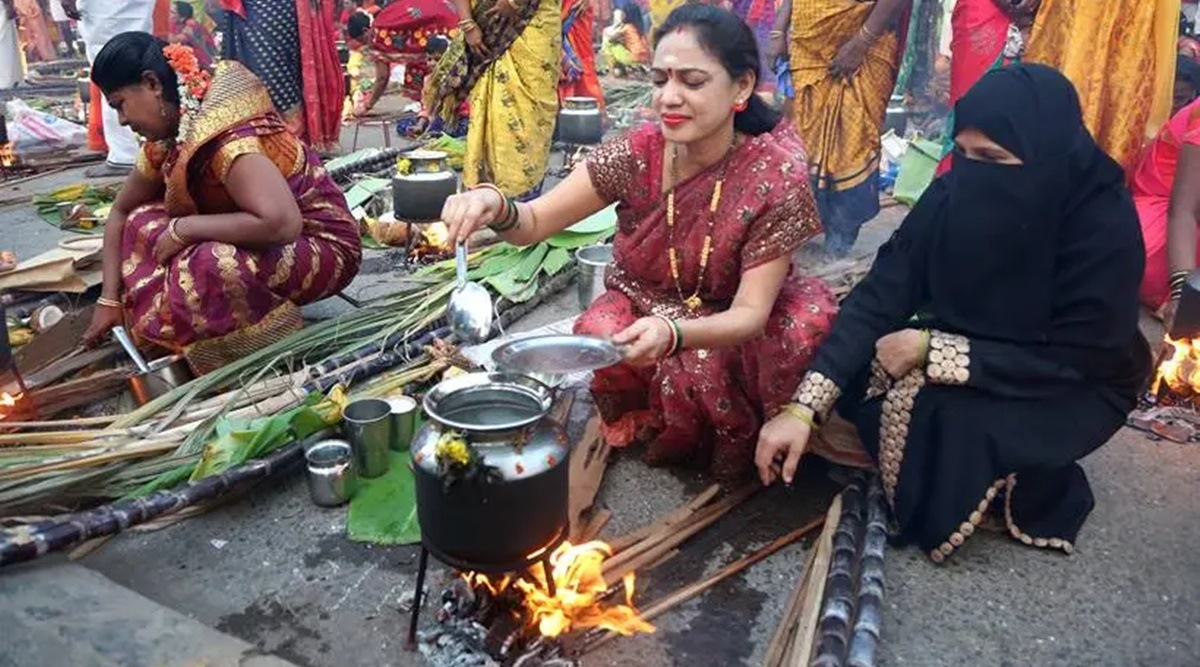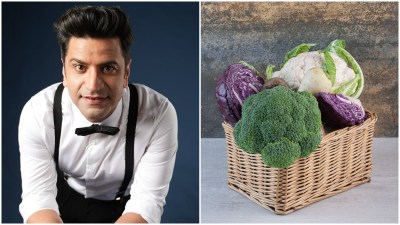📣 For more lifestyle news, click here to join our WhatsApp Channel and also follow us on Instagram
Pongal and Makar Sankranti 2023 Date: When are Pongal and Makar Sankranti in India?
Pongal and Makar Sankranti 2023 Date: 'Pongal’, which means “spilling over,” comes from the ritual of boiling freshly harvested rice with milk and jaggery in a newly-made or bought clay pot until it overflows. This is symbolic of life's favourable beginnings
 Pongal 2023 Date: People come together to boil freshly-harvested rice, along with milk and jaggery in a brand new clay pot on Thai Pongal. (Source: Express Photo by Prashant Nadkar)
Pongal 2023 Date: People come together to boil freshly-harvested rice, along with milk and jaggery in a brand new clay pot on Thai Pongal. (Source: Express Photo by Prashant Nadkar) Pongal and Makar Sankranti 2023 Date: Pongal, a popular harvest festival, is widely celebrated in Tamil Nadu and other southern states of India. This year, Pongal celebrations will begin on January 14 and will continue until January 17. Makar Sankranti, on the other hand, will be celebrated on January 15.
Every year in mid-January, the four-day Pongal festival commemorates the end of the winter season and the beginning of Uttarayan or the sun’s trek northward. The celebration coincides with Makar Sankranti, the harvest festival observed in several northern parts of the country, during which people worship the sun deity.
‘Pongal’, which means “spilling over,” comes from the ritual of boiling freshly harvested rice with milk and jaggery in a newly-made or bought clay pot until it overflows. This is symbolic of life’s favourable beginnings.
Legend has it that Lord Shiva once asked Basava or the bull to visit the Earth and ask humans to have an oil massage and bath every day. But Basava happened to announce that eat daily and have an oil bath once a month. This made Lord Shiva furious and he cursed Basava to live on the Earth forever. Basava was to plow the fields and help people produce more food. Hence, it is said that people after harvesting the crops, celebrate this festival with cattle.
Spread over four-days, the festival begins with Bhogi Pongal which is followed by Surya Pongal, then Maattu Pongal, and Kanum Pongal. Each of the days have unique significance with the second day being more most important day.
While on Bhogi, old clothes and materials are thrown away and burned signalling the start of a new life, and marking end of the Tamil month of Marghazi, on Thai Pongal, the second day of the celebrations, people come together to enjoy delicacies with friends and family. On the third day, cattle are decorated with flower garlands, given bananas, and worshipped and is known as Mattu pongal. The fourth day marks all social gatherings and is called Kannum Pongal.
The preparation of the traditional Pongal dish is the festival’s most important custom. Rice that has just been harvested is used, and is cooked by boiling it with milk and raw cane sugar (jaggery). It is said that the dish is made as an ode to the Sun god or Surya dev, and is prepared in the sunlight, especially in the early mornings, and typically in a courtyard or porch. The traditional greeting on the Pongal day is “Has the rice boiled? even as family and friends gather together and chant ‘Pongal O Pongal’.
On Makar Sankranti, worshippers usually bathe in sacred rivers such as the Ganga, Yamuna, Godavari, Krishna, and Cauvery on this day. For believers, taking a dip absolves them of their sins; it is also seen as a time of peace and prosperity, and countless spiritual deeds are performed on this day. Sesame and jaggery ladoos or chikkis are distributed on this day to symbolise the desire for people to live in peace and harmony.
Are you excited about the festivities ahead?
📣 For more lifestyle news, follow us on Instagram | Twitter | Facebook and don’t miss out on the latest updates!
📣 For more lifestyle news, click here to join our WhatsApp Channel and also follow us on Instagram
- 01
- 02
- 03
- 04
- 05



























